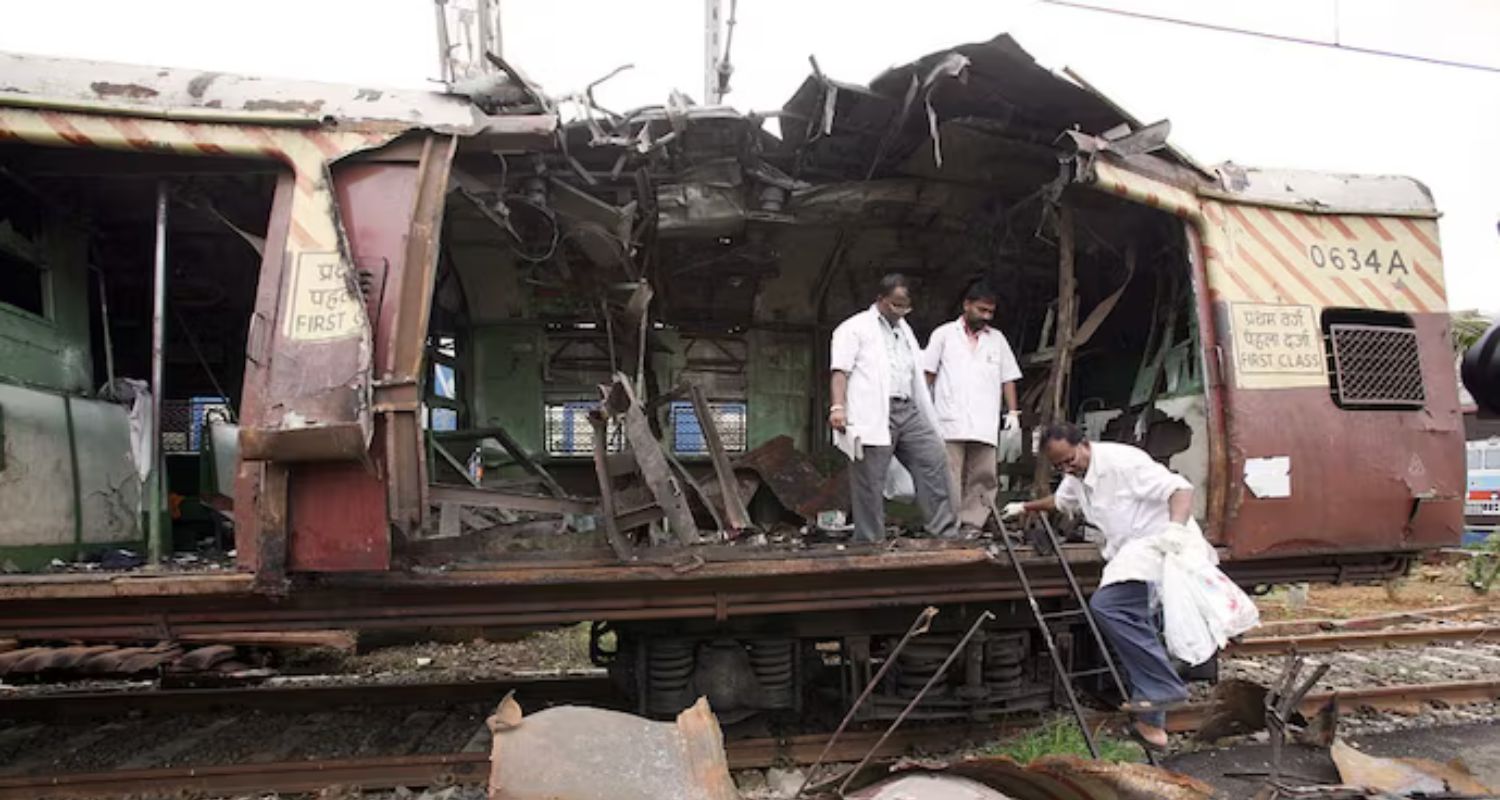Nearly two decades after one of India's deadliest terror attacks, the Bombay High Court on Monday acquitted all 12 men who were convicted for their alleged roles in the 2006 Mumbai train bombings. The blasts, which occurred in first-class compartments of suburban trains during peak hours, claimed 189 lives and injured over 800 people.
A division bench comprising Justices Revati Mohite Dere and Gauri Godse delivered the verdict, overturning the October 2015 judgment of the special Maharashtra Control of Organised Crime Act (MCOCA) court, which had sentenced five of the accused to death and the remaining seven to life imprisonment.

The Bombay High Court raised concerns about the validity of confessional statements and the credibility of witnesses by pointing out significant flaws in the prosecution's case. The bench noted that several witnesses were silent for long periods of time—some for more than four years—before abruptly identifying the accused, demonstrating that key testimonies lacked credibility. "The defence had rightly questioned the integrity of the test identification parade. The conduct of witnesses who suddenly identified the accused after years of silence is not only unusual but suspicious," the court noted.
The judges also questioned the veracity of one important witness's testimony due to his dubious background, which included testifying in multiple unrelated cases, such as the Ghatkopar blast case. The court noted that other witnesses did not sufficiently explain how they were able to remember and identify the accused after such a long period of time had passed.
The High Court noted procedural errors in the handling of forensic evidence in addition to concerns about the credibility of the witnesses. "There was no proper chain of custody established for explosives like RDX. The prosecution could not prove that the seized material remained uncontaminated until it reached the Forensic Science Laboratory," the bench stated.
Also Read: Marathi language row: MNS leaders, workers detained in Thane
Highlighting what it described as "non-application of mind" by the trial court, the High Court concluded that the prosecution had failed to establish guilt beyond reasonable doubt. "It is difficult to accept that the prosecution's case can sustain legal scrutiny," the bench said while setting aside the convictions. Of the 12 men originally convicted, one—Kamal Ansari—passed away in 2021 while serving his sentence at Nagpur prison due to Covid-19. The remaining 11, who have each spent 19 years behind bars, are now set to be released.
Reacting to the judgment, defence lawyer Yug Mohit Chaudhry said, "This verdict brings hope to many who have been wrongly incarcerated. It reflects the importance of upholding justice, even after many years." In response, the bench remarked, "We did our duty. It was our responsibility." Public Prosecutor Raja Thakare, acknowledging the verdict, commented that the judgment would act as a "guiding light" for the handling of similar cases in future.
The nation will never forget the horrific act of coordinated terror that was the 2006 Mumbai train bombings, which targeted commuters on the Western Railway line during the evening rush hour. The decision on Monday marks the dramatic end of a significant legal chapter in the case.
Also Read: Cong, AAP, Patidars slam Raj Thackeray over Sardar Patel remark



